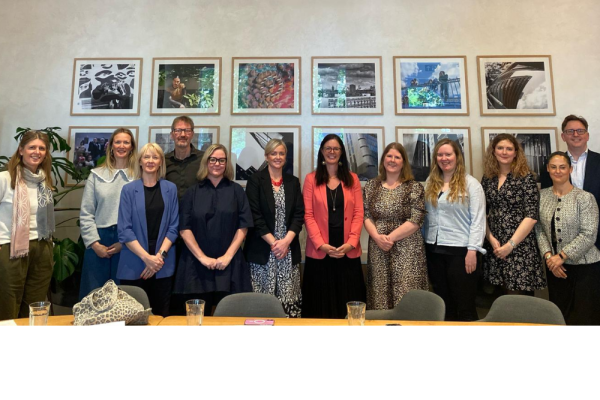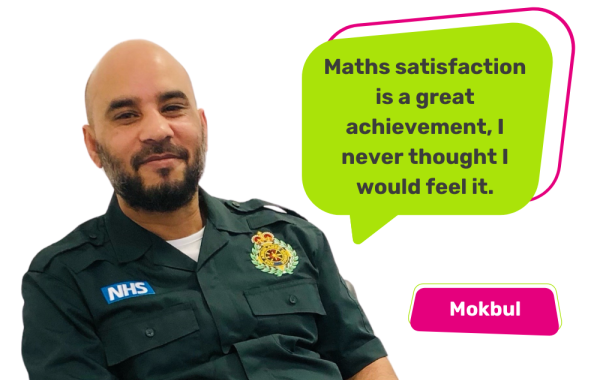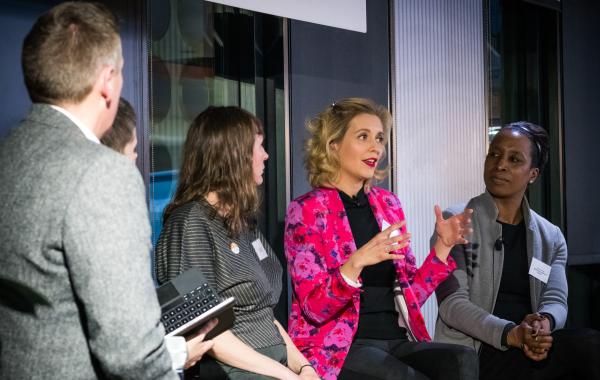At the end of last year, the government announced the creation of a Financial Inclusion Committee, with a brief to tackle barriers to individuals’ and households’ ability to access affordable and appropriate financial products and services.
The Committee brings together a range of financial institutions and consumer groups, and is focusing on digital inclusion, access to banking services, savings, insurance, affordable credit, problem debt, financial education, and financial capability. Its findings will then form part of the government’s Financial Inclusion Strategy, which is set to be published later this year.
We empower people to thrive, open up opportunities and access brighter futures
At National Numeracy, we work to empower people to thrive by using numeracy to open up opportunities and access brighter futures, targeting communities where the need is greatest. It was great to contribute alongside a fantastic range of organisations supporting financial inclusion, capability and education.
Numeracy is all about having the skills and confidence to use maths in everyday life, and low numeracy has been described by the Financial Conduct Authority as the largest consumer vulnerability affecting the nation.
Being numerate doesn’t guarantee you’ll do a good job of managing your money, but struggling with numeracy can make managing your money more challenging. As Cathy, who we’ve supported to build her number confidence, puts it: "If you don’t have the skills to work out a percentage, how are you going to look after your money?"
And it’s not just a lack of maths skills that can get in the way of managing your money, it’s how you feel about maths too. As Belinda, says: "I was terrified of numbers… I used to literally open and close my bills and put them in a drawer because it overwhelmed me."
Basic maths skills and the confidence to use them are essential
It makes sense that basic maths skills and the confidence to use them are essential if you’re going to feel comfortable looking after your money. Yet, the reality is that around half of UK adults have primary school levels of numeracy. And nearly nine in every ten people with low confidence with numbers rate their knowledge of financial matters as low.
People from poorer communities, women, girls and younger adults are more vulnerable
With Experian, we’ve developed the UK Numeracy Index, which shows that the strongest predictor of a person’s numeracy level is their socio-economic background. Additionally, this is felt most acutely by women and girls, for whom a number confidence divide holds millions back from fulfilling their potential. And 42% of 18-24 year-olds who want to improve their numeracy, say that it’s in order to better manage their money – the largest percentage of any age-group.
So, people from poorer communities, women, girls and younger adults are more vulnerable to having lower numeracy, which may get in the way of managing their money. This is a lot of people! Our view is that efforts to improve financial capability will only truly succeed if they are combined with support to increase people’s confidence with the numeracy skills needed to manage their money.
We know that adults with low numeracy may struggle to seek help with their maths – there are often too many anxieties in place. But many are interested in improving their money management skills, and, actually, this is a great opportunity to support people with the maths they need as part of this.
Boosting financial inclusion of the nation
At National Numeracy, we’d love to see a focus on building numeracy integrated within a greater focus on financial education, to truly boost financial inclusion not just among young people, but of the nation as a whole.
Cross-sector partnerships will be key, whether it’s financial education, digital skills, numeracy, or other essential support, and helping people to access integrated support is likely to be even more effective.
We’re always keen to partner with other organisations at National Numeracy – please do get in touch if you feel there are opportunities to work together on improving numeracy alongside people’s money management skills.








